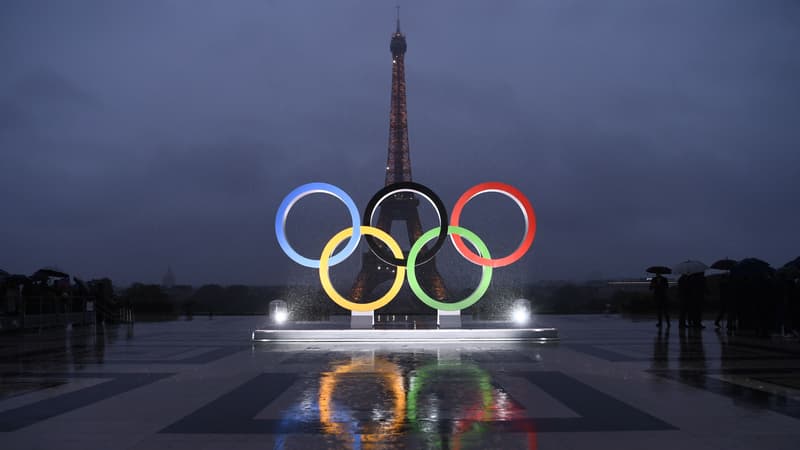It is a bit of a million-dollar question: what will be the impact of the Olympic Games on the French economy and especially that of Île-de-France, which will host the vast majority of the events? The National Institute of Statistics and Economic Studies (Insee) and the Bank of France tried to provide some answers during a conference organized on Wednesday together with businessmen and representatives of sectors of activity especially concerned about the event.
According to a survey carried out by the Banque de France last July, 28% of businessmen believe that the celebration of the Olympic Games in Paris in 2024 will have an impact on their activity with some disparities between sectors of activity: this percentage It rises to 30% in construction and even 40% in commercial services, compared to only 20% in industry. These business leaders estimate the impact on their activity over the event horizon at around +10% compared to normal activity.
A budget equivalent to only 0.08% of the GDP of the Ile-de-France
Maëlan Le Goff, head of the Bank of France’s economic department in Île-de-France, set the stage. From the millions of expected visitors who will have to find accommodation, eat and travel, to the sixty infrastructures built or renovated in the Paris region, including the important security measures necessary, the factors of activity are numerous and considerable. In appearance anyway.
Vincent Biausque thus cited some figures that tend to put the magnitude of the event into perspective. According to estimates, the workers employed on its construction sites by Solideo, the company in charge of carrying out the Olympic works, represent only 1% of jobs in the construction sector in the Paris region.
Regarding the public budget for the Olympic and Paralympic Games, the 2.4 billion euros are equivalent to only 0.08% of the GDP of Île-de-France in four years or even 0.04% of public spending in France in four years . “These orders of magnitude allow us to put into perspective the magnitude of the event and make us aware that in Île-de-France, it is at the micro level of certain sectors of activity, of certain companies and of certain territories where things can be analyzed and will have a significant impact,” insists the INSEE Île-de-France representative.
To illustrate the risk of stress that the event represents at a microeconomic level, Vincent Biausque cites the example of the security professions and the surplus of 20,000 jobs planned for the JOP, which represents approximately a third of the number of people working in this sector in the Paris Region.
An increase in the number of foreign visitors but without an explosion
One of the most used indicators to estimate the economic benefits of the Olympic Games is the number of tourists. According to Vincent Biausque, the number of tourists and overnight stays in Île-de-France should be quite consistent with the average, but the deputy regional director in charge of the JOP Insee Île-de-France places the emphasis on day-trippers, i.e. say people who will travel during the day to attend competitions. “This is without a doubt the main issue in terms of logistics and flow of transportation of people in a territory during a given time,” he explains.
In other words, an increase in the number of foreign visitors is expected, but not an explosion. “We have a situation of international competition regarding the attractiveness of cities and that is why an event like this serves as a showcase to attract new people,” emphasizes the expert.
According to him, the most relevant question is not “will more people come to Paris after the Games?” but rather: “If the Games had not happened, what would have been the long-term impact on tourism in Île-de-France?” In this sense, he compares global metropolises with companies: “We must continue advertising to remain in the international tourism market.”
There is no surprise effect in London
If Vincent Biausque wants to be measured about the economic repercussions of the event, it is because the London precedent of 2012 demands caution.
It indicates, in particular, that the number of admissions to main attractions, such as London museums, fell in August, which can be explained by the closure of certain areas of the British capital, but also by the different profile of the people who They came to London during this period compared to the usual August months.
Furthermore, the hotel occupancy rate certainly reached 88.5% during the Olympic period, five points higher than the usual average, but this figure is “far from the theoretically achievable 100% occupancy rate.” For his part, Jean Pascal Prevet, from the Bank of France, confirms that measuring the impact of the Olympic Games is complex but is optimistic: “In general, we believe that it is positive for the economy [francilienne]will not completely change the face of businesses in Île-de-France […] There is a long-term challenge because if we are successful in the Olympic Games, the image of Île-de-France and Paris will in the future be a positive element for the attractiveness of the territory.”
Source: BFM TV


